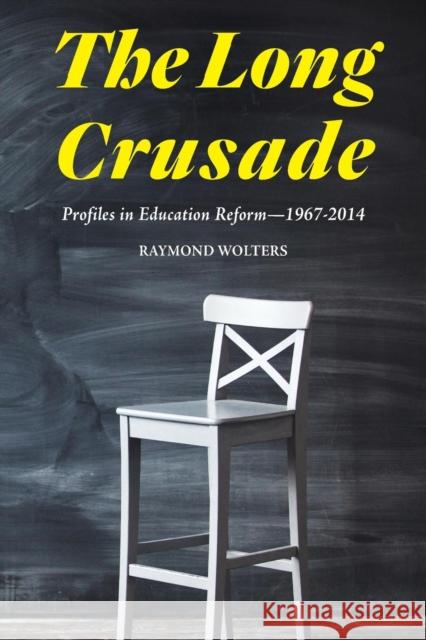The Long Crusade: Profiles in Education Reform, 1967-2014 » książka
The Long Crusade: Profiles in Education Reform, 1967-2014
ISBN-13: 9781593680411 / Angielski / Miękka / 2015 / 612 str.
The Long Crusade: Profiles in Education Reform, 1967-2014
ISBN-13: 9781593680411 / Angielski / Miękka / 2015 / 612 str.
(netto: 170,42 VAT: 5%)
Najniższa cena z 30 dni: 176,12
ok. 16-18 dni roboczych.
Darmowa dostawa!
Ever since the 1954 *Brown v. Board of Education* decision, which launched a national effort to desegregate American schools, education reform has been one of the most resonant, controversial, and perplexing social and political issues.In *The Long Crusade*, Raymond Wolters traces the history of the past half-century of school reform by telling the stories of its most influential writers, activists, and intellectual movements. These range from the "neo-progressives" (Jonathan Kozol, Howard Gardner, and Theodore Sizer) to "back to basics" reformers (Chris Whittle, Robert Slavin, and E. D. Hirsch) to contemporary advocates of "accountability" (Teach For America, Michelle Rhee, and Arne Duncan). Wolters concludes by profiling "contrarians" (Diane Ravitch, Robert Weissberg, and the "race realists"), who brought into question many of the orthodoxies of this period.Americas educational crusades have been varied, but virtually all have shared a common fate: racial achievement gaps have never been closed. Wolters argues that these failures are not merely a result of bad policies. Underlying virtually all of these approaches has been the assumption that no innate cognitive differences exist between races. Wolters stresses that it is time to rethink what has been assumed-and to look with new eyes on the failures and achievements of the American educational system.











